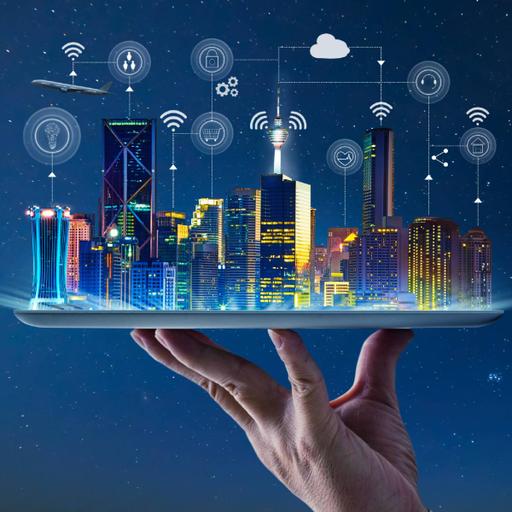Smart City
Presentations | English
Smart cities have been a hot topic recently, but do you know what they are? What constitutes a smart city and distinguishes it from a traditional city? A smart city, in general, is one that employs technology to deliver services and address problems. A smart city improves transportation and accessibility, enhances social services, promotes sustainability, and empowers its residents. The concept of "smart cities" isn't new, but the word is. Ancient Roman cities incorporated aspects of the notion, such as harnessing technology to make life easier for its residents. Aqueducts and water drainage systems were just two of the methods they used to do this. The ability of a city to produce well-being for its residents is described as "smart”. However, it is not just about how citizens benefit from the government's services. Citizen participation is a critical component of a smart city. It is based on the notion that citizens, rather than the city, construct it. This instrument is used by cities to collect data in real time on a variety of topics, such as traffic, air and water quality, and solar radiation. The government can respond quickly with this information to fix almost any situation. Installing sensors in the streets to detect things like empty parking spaces is one of the most well-known applications of this instrument.

5.50
Lumens
PPTX (22 Slides)
Smart City
Presentations | English
